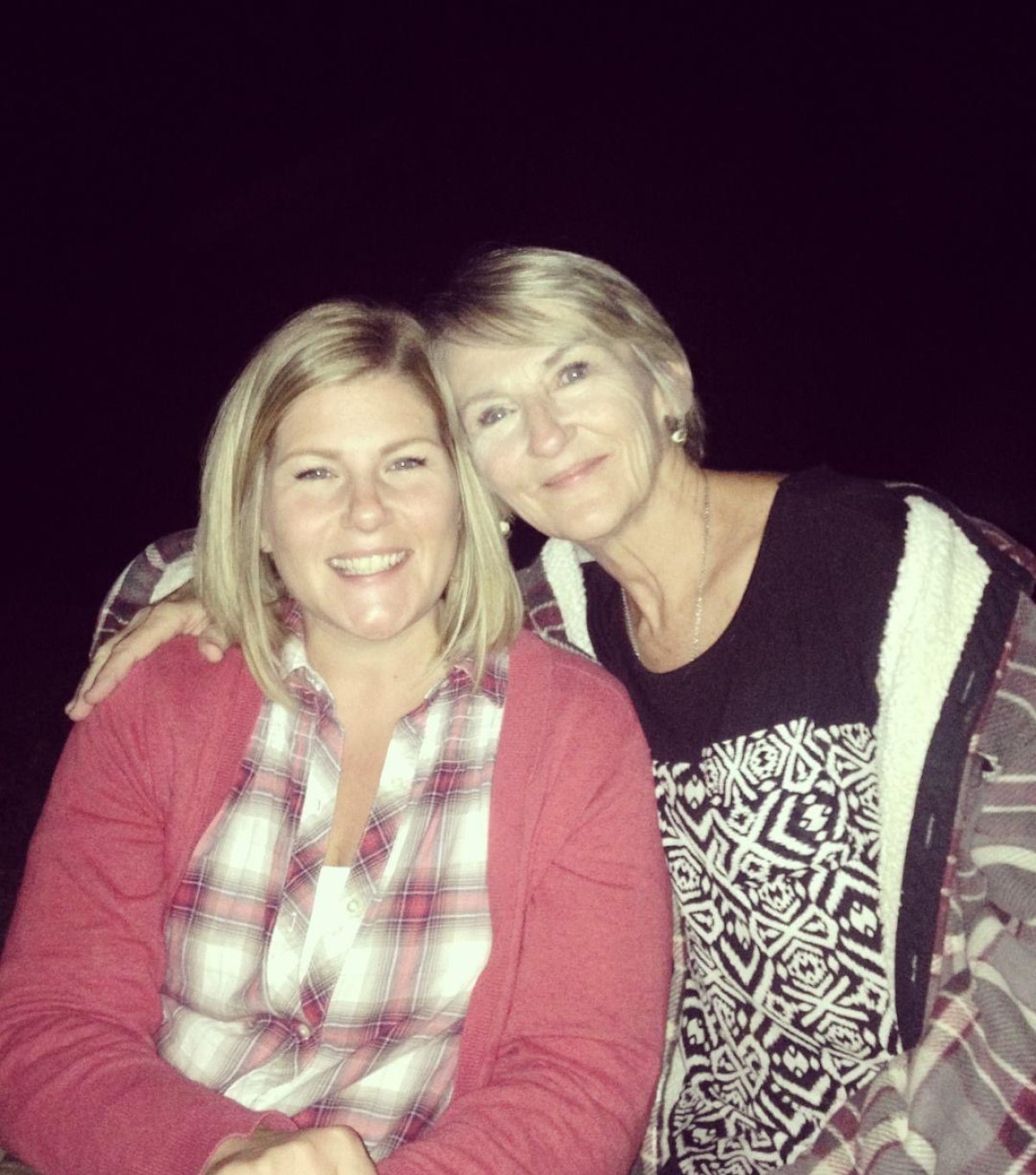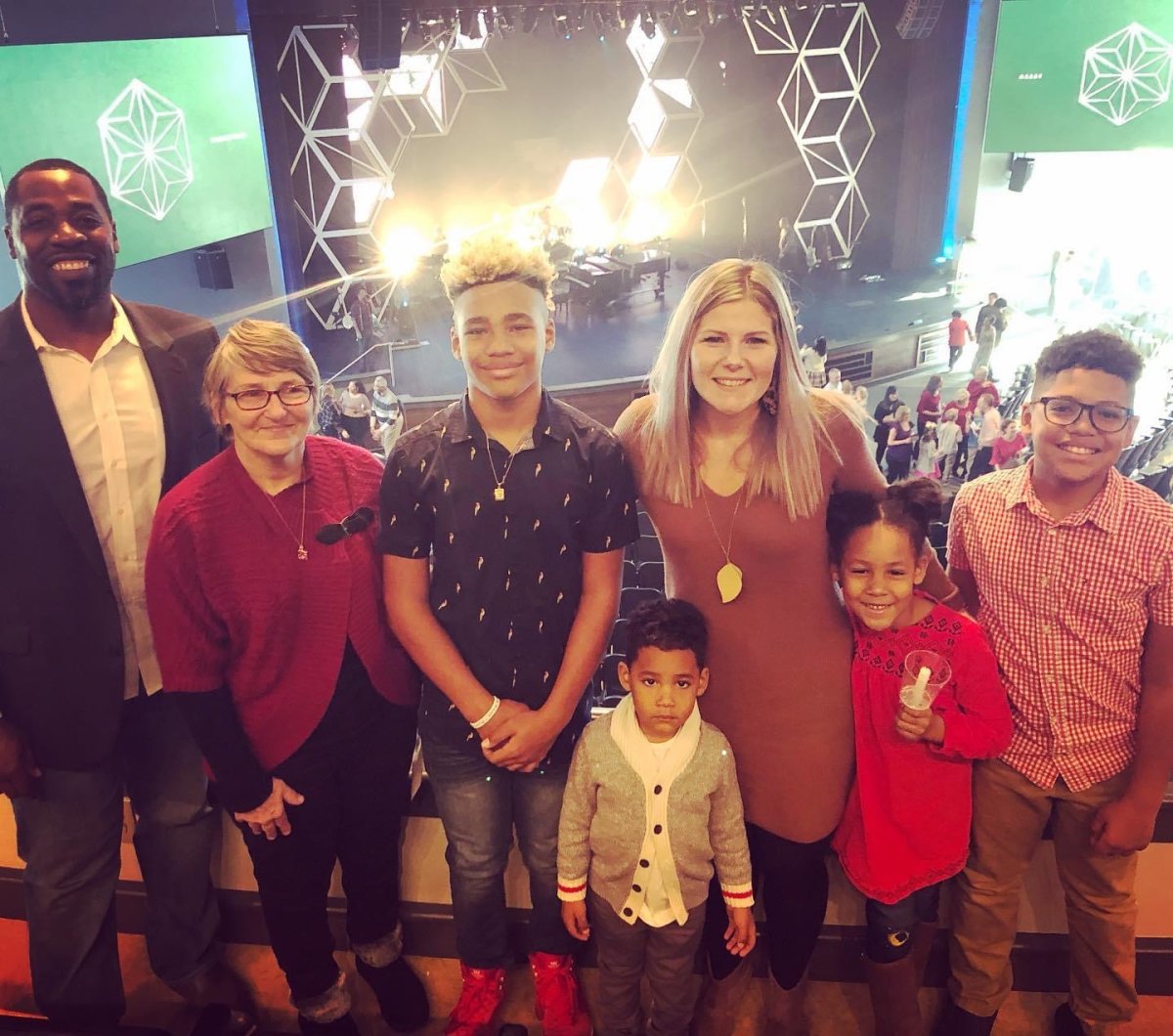Before the COVID-19 pandemic, I was a typical working mom. I work part time for Perimeter Church in Johns Creek, Georgia and I have four kids—my eldest boys are 10 and 12 and then I have a seven-year-old daughter and a three-year-old son. When Georgia went into lockdown in March, my husband Devon and I and my kids were all at home, along with my mom, Denise, who lives with us.
My mom is 65 now, but in her late 50s, she started to become very forgetful, and was losing things. We'd have phone conversations and she would say the same things over and over, or she would not remember what was said. One of my best friends died, I shared that with her and later on in the conversation she had forgotten, so I knew that something serious was going on.
Back when I was in college, my grandmother had early-onset Alzheimer's disease—she was diagnosed at around 66 and moved in with my mom—so we saw the decline of my grandmother's memory first hand and learned how the disease worked.
I talked to my dad about it but he thought that she was just getting forgetful, and then five years ago he died. That was really traumatic for my mom, so I think that caused a turn for the worse. We moved her from Virginia to Georgia to be closer to us, because my three siblings and I live here. When living with my sister, mom would get lost when driving and be gone for hours, or not be able to follow recipes.

We knew we wanted to have her formally diagnosed but because my dad had just died, we waited to spare her feelings—then four years ago she also was diagnosed with early-onset Alzheimer's disease. She moved in with me and my family for around nine months after staying with my sister, and I think all the transition made things worse for her.
She had a lot of really intense fear and anxiety, and would wander and roam. I remember she'd look through her purse again and again, and would hallucinate—seeing people who weren't there. Then she began forgetting things she would normally know; books, TV shows or songs, and she became more irritable and more frustrated.
It was a lot for us to handle, so we moved her into a memory care unit where she had a schedule that was regimented and it was quiet, so it was really good for her. That, along with medication she was taking, meant she really improved.
But while it was great for those two years, my mom doesn't have a ton of money, and neither do we, so in 2019 we decided we were going to move her in with one of us siblings. My husband was fully in support of moving my mom in with us—we both felt like it was the right thing to do to serve her and to serve God. But one of the reasons we were able to make that decision was that my mom attended a daycare facility in Duluth weekdays between 8am and 5pm, because I knew I could not—or so I thought at the time—handle giving care to both my mom and my kids all day long.
And so since COVID-19 hit and daycare closed down, it has been very difficult to maintain a family atmosphere of joy for my kids. I think that pandemic has played a part in that, but my mom can't handle any type of noise—from dropping a toy to putting dishes in the sink. It scares her, so I feel like I'm constantly having to tell my kids to be quiet and not to yell unless they're running around outside.
One thing I didn't anticipate in caring for my mom is that she needs to be as close to me as possible—I want to have compassion but it's so exhausting because I also have to look after my kids all day long. A lot of the time my mom gets the most patience because I do look at her as this fragile human being. So I might get mad with my kids long before I get mad with her, and then I feel like my kids are not always getting the best of me.
Last year, when she moved back in with us, she knew who my children were—but she has now forgotten them. The lockdown really seems to have been detrimental to her disease—gone are the days when she remembers who I am or who my siblings are. There was also about a month when she just stopped eating, and I was scared she was starving. The doctor helped with changing her medication, but I was panicking.
I don't sit and think about the fact that she doesn't know me, because I feel I would live in a state of sadness. I compartmentalize, and I almost consider myself a nurse or a friend to protect myself. But it upsets me that she doesn't remember my children, just because they cannot compartmentalize. She doesn't know who they are and doesn't treat them with much kindness. I want to step in and yell at her for not treating them nicely, but I'm also heartbroken because she's their grandma and she has no idea of that.

Mom was a kindergarten teacher and loved children, and she was a fun grandma and a fun person. But of course there was dysfunction in our family, so it's hard for me sometimes when I read social media posts from people caring for parents with Alzheimer's disease who did have that best friendship. I just didn't have that with my mom.
When people think of Alzheimer's disease, I think they either imagine the beginning when the person is just forgetful or the latest stages when you're feeding them and changing their diapers. I personally never thought about this long in between, emotionally draining, part of Alzheimer's, the constant need to engage with mom and needing to be with her. It's almost like I have the power to make or break how my mom is feeling in each moment. I knew I could do the nursing tasks but I could never even have imagined how hard the emotional side would be.
We're trying to take care of her until I can't handle the bigger things that I think come with the end of life with this disease. Our plan is that my mom will stay with us until she stops eating or incontinence sets in. Then we will either hire someone to be here all the time with her, or we would have to move her back into a home to get the proper care she'd need.
And I don't know exactly when that will happen. I thought it was going to be quicker than it has been because of the speed of her decline. But that's the hard thing about this disease—there is no rhyme or reason.
Tara Stack is a working mother of four children aged four, seven, 10 and 12. She lives in Duluth, Georgia. Tara and her husband have been married for 16 years and both work at Perimeter Church in Johns Creek, Georgia. She also runs an online health and fitness coaching program and coaches clients all over the world. Tara provides full time care for her mother Denise, who has Alzheimer's Disease. Tara has received guidance from the Alzheimer's Association. Visit her instagram @taracstack.
All views expressed in this piece are the writer's own.
As told to Jenny Haward.
Uncommon Knowledge
Newsweek is committed to challenging conventional wisdom and finding connections in the search for common ground.
Newsweek is committed to challenging conventional wisdom and finding connections in the search for common ground.
About the writer
To read how Newsweek uses AI as a newsroom tool, Click here.








